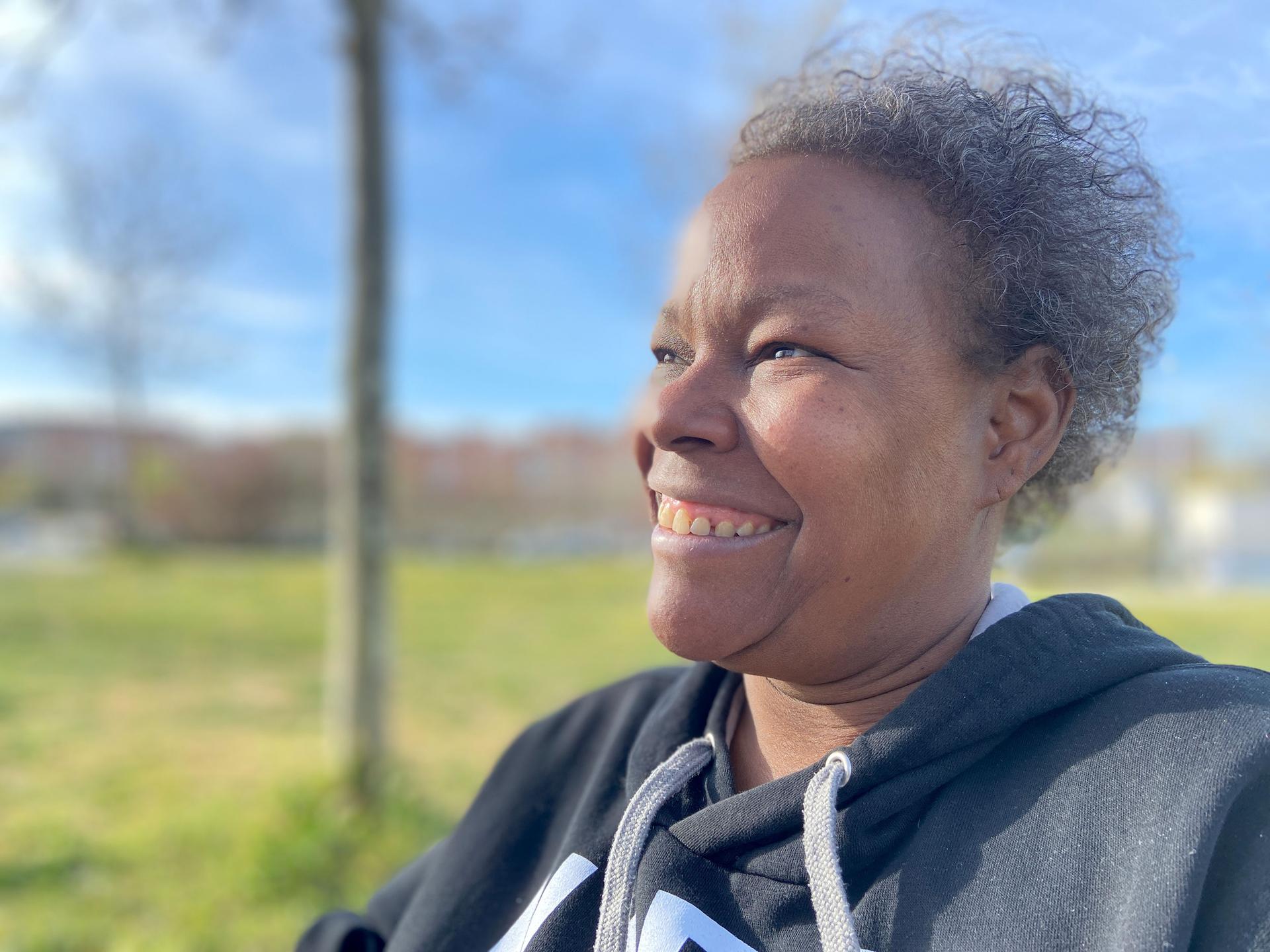‘What I really needed was a hug’: Madrid hospice workers make sure the unhoused won’t die alone
Vicky, 52, has been homeless in Madrid for decades. With advanced lung cancer as well as breast cancer, and a tumor behind her eye, she can only walk short distances before she’s out of breath and needs to sit.
“Is it my fault for drinking and smoking? I asked the docs,” she said. “They said that it spread and grew because I didn’t follow the treatment, or even go to my doctor’s appointments.”
In Spain, social workers estimate that dozens of people die outside each year, often alone. But in Madrid, a small group of hospice volunteers called 38 Degrees is trying to make a difference by offering end-of-life care to those who need it most.
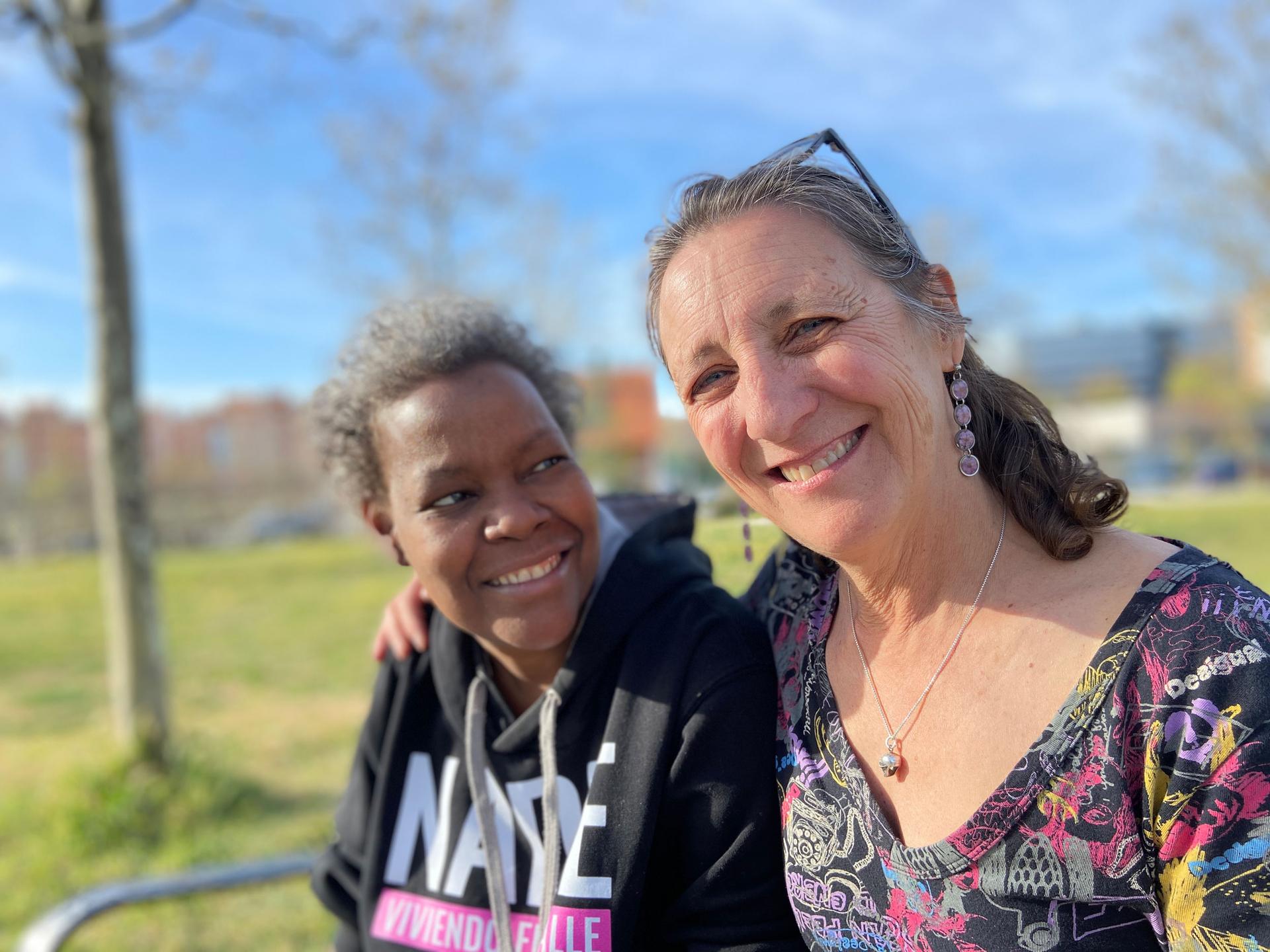
For many people, the idea of dying can be frightening — especially the thought of dying alone. But for people who are homeless, that fear too often comes true.
Vicky, who is terminally ill, who asked that her full name not be used to protect her privacy, said that receiving help from hospice volunteer Sole Gallego was unexpected — and life-changing.
Vicky went through one round of chemo for breast cancer. But she said that the treatment left her confused and weak. It was around this time that she met Gallego.
“If you’re sick and have no home,” Gallego said, “and you get treatment like chemotherapy, it can be very complicated. You’re out vomiting on the sidewalk. Maybe you’re in severe pain, but you have no access to painkillers. It’s terrible.”
Once a week, Gallegos visits Vicky in a Madrid park. They met through a small hospice care facility funded by the Community of Madrid called Hogar Sí, or Yes to a Home.
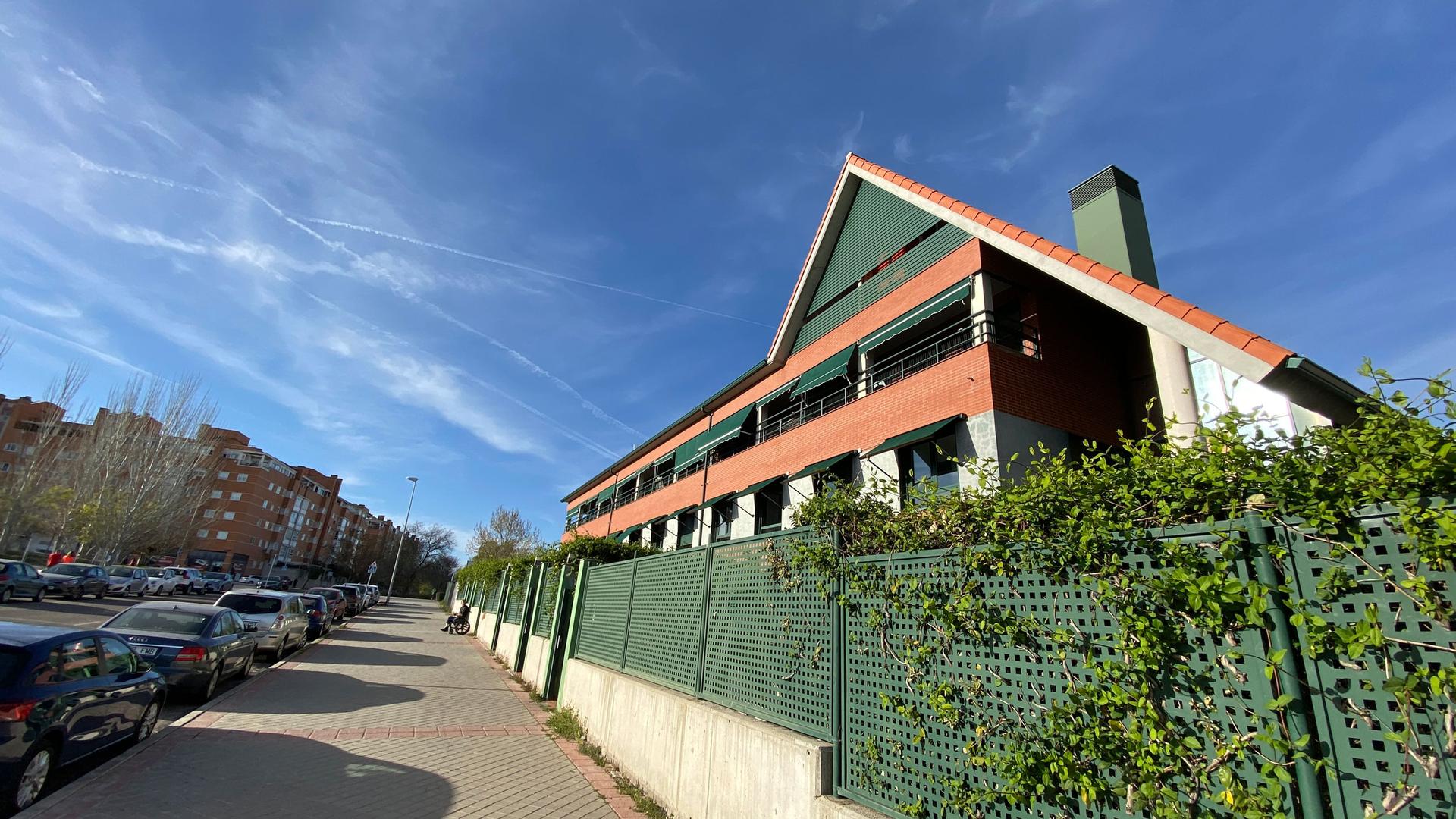
“I didn’t need money for cigarettes or booze,” Vicky said, taking Gallego’s hand. “What I really needed was a hug. For someone to say to me, ‘Easy now, you can keep going.’ Sole’s hugs fill me with such joy.”
“We need to remember,” Gallegos said with arms around Vicky, “that there’s a human being behind the person you see on the street. No matter what their story.”
Hogar Sí, the hospice home just across the street from the park, consists of six rowhouses, with 10 sick residents in each. On a recent morning, Vicky was preparing lunch for her roommates, slicing onions and frying up garlic for a veggie stew.
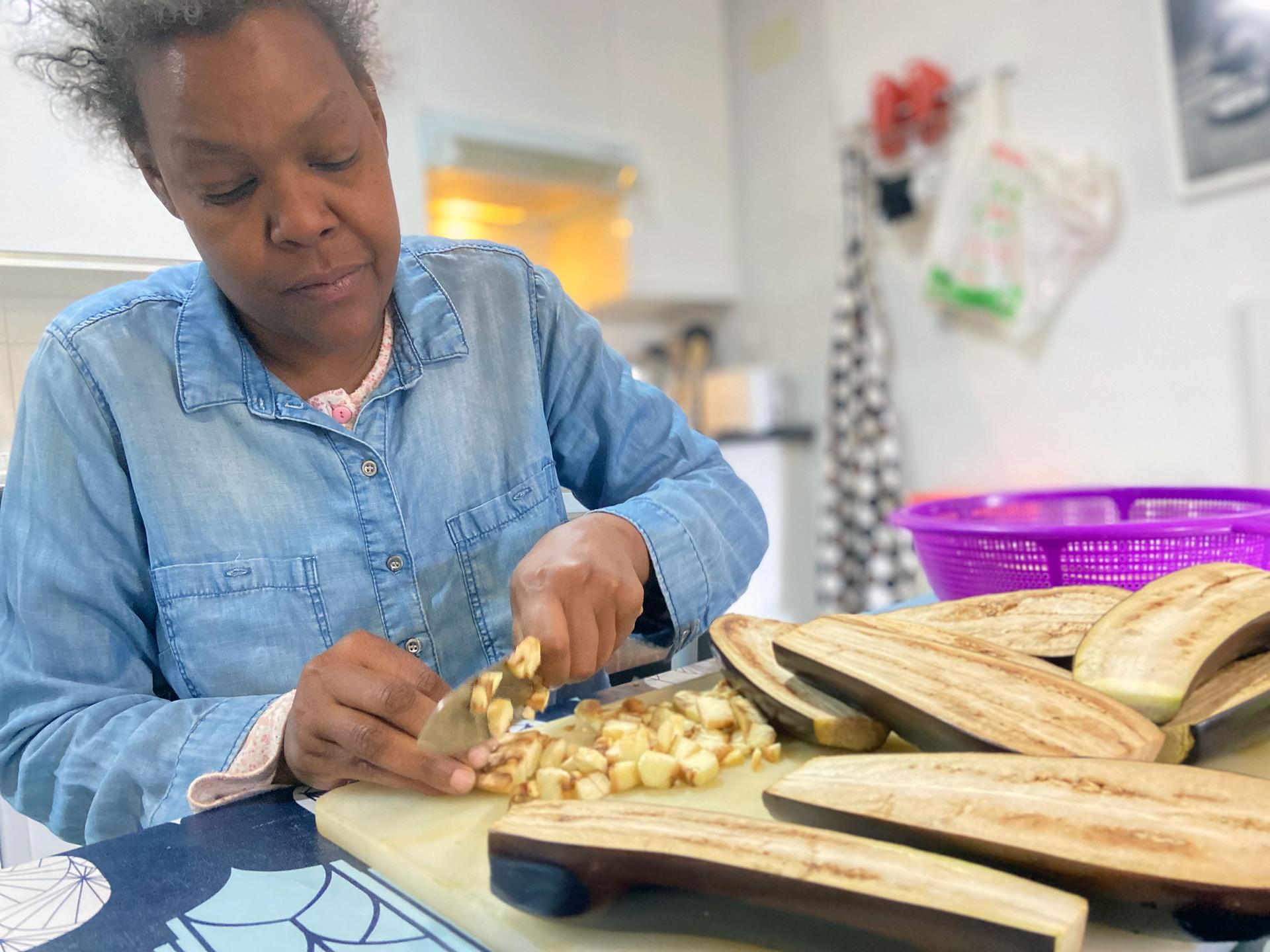
“Last night, the man in the room next to mine got really sick,” she said.
“It was so sad. Many times, when the ambulance takes them away in the night like that, they never come back. But anyway, that’s what this disease does.”
The incident reminded Vicky of her years on the street, before a hospital referred her here and she met Antonio. Over time, she said, he became like a father to her, showing her the ropes with where to sleep, eat and shower. He protected her.
“One morning I nudged him. I said, ‘Antonio, wake up, we need to get to the church for pastries, otherwise we’ll miss out.’”
Vicky figured he was asleep so she went by herself.
“When I came back carrying our food, I saw the ambulances and the police,”she said. “Antonio was dead.”
Vicky said that was the moment when she decided to get off the street for good. As luck would have it, a bed opened up soon after at the hospice center.
“I don’t know what I would have done otherwise,” she said.
“Antonio’s death hit me hard. Seeing him dead on the street, like a dog. I wondered, what are they going to do with his body? Where will they take him? I almost went crazy.”
These questions often haunt people who are unhoused. At least 1,600 people in Madrid are currently homeless, according to city data.
Among them is Francisco, who was drinking with other guys on a busy square downtown one recent morning. He also asked that his full name not be used.
He said he used to work in the vineyards.
“And now, here I am drinking wine to stay warm,” he said.
“I have a terrible disease,” he said, picking at a line of purple scabs on his forearm. “HIV. I’ve been on the street now for a year and a half.”
When asked if he was on any medication, he said no.
“The problem is that I drink, then screw everything up. But I am scared,” he said.
Back at the Hogar Sí hospice home, Vicky’s fears were on hold for now. She just learned that Sole Gallego, the hospice volunteer, had managed to grant her a sort of last wish — to return to the Dominican Republic to visit her elderly mom and family.
“Sole is one of a kind,” she said, smiling. “You can just feel how noble she is. I’m so nervous! But until I have the tickets in hand I just won’t believe it!”
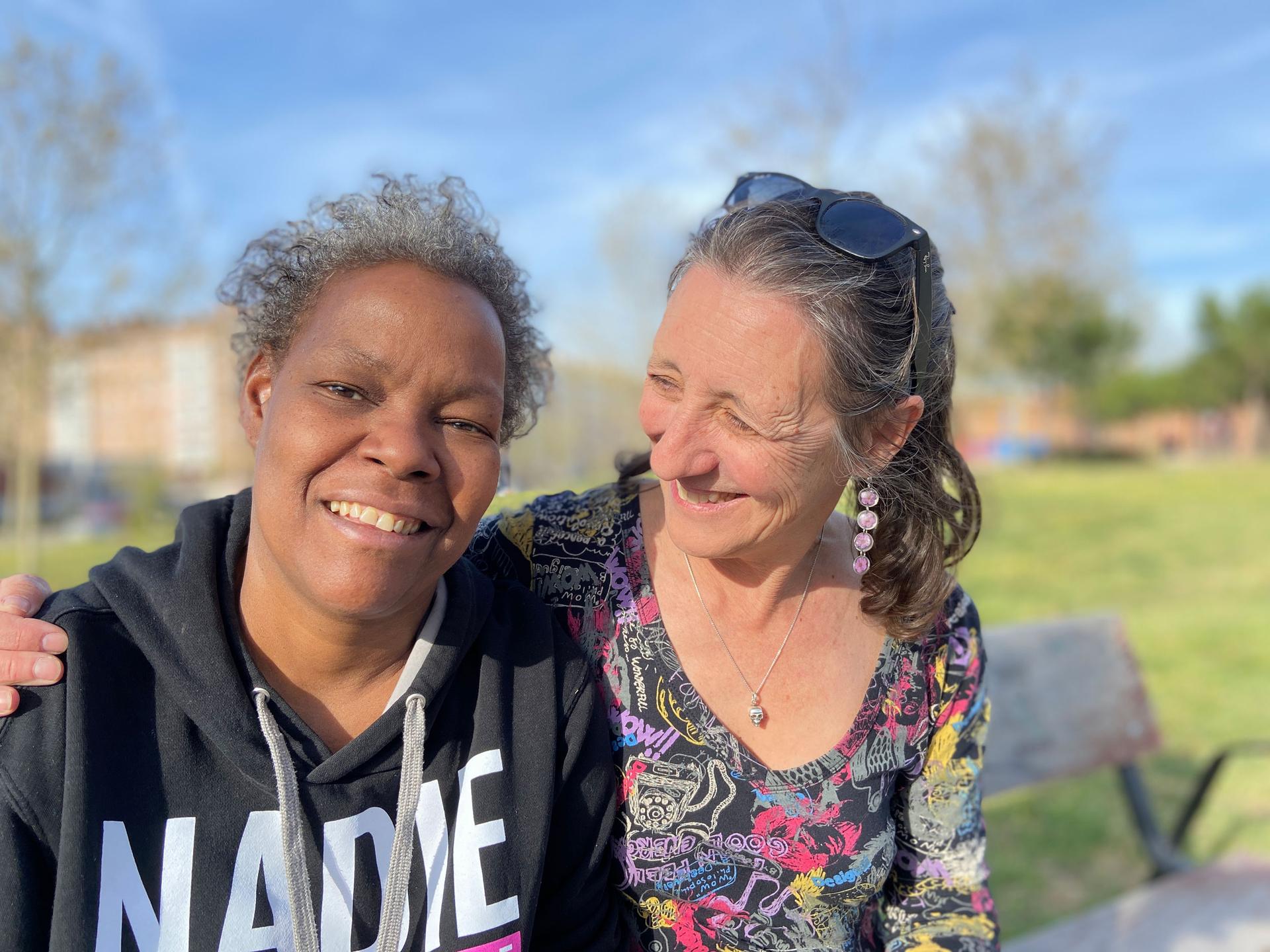
When Vicky was a kid, her mom moved away from home to work, leaving her with her dad and 13 brothers. She got pregnant at the age of 11, and her life went off the rails. During her teen years, she said, she had another miscarriage, two abortions and then she lost a child to gang violence.
Her mom helped her get to Spain decades ago to try to turn her life around, but Vicky continued to face battles with homelessness and alcoholism.
Vicky now plans to return home for a two-week visit. Doctors insist she returns to Spain to continue with her cancer treatment. But the trip has given her the unimaginable gift for a terminally ill patient — something to look forward to.
